How Does a YA Series Remain Whole as it Grows?

As a reader, it is instinct to wish for one’s favorite series to go on forever. It’s always one more chapter, one more scene, one more adventure. Afterall, finishing a book is almost like saying goodbye–and nobody enjoys goodbyes. Amid this quiet wish to hold on, however, there remains a very old question: what keeps a series whole as it grows?
While wandering the ever growing YA sections of bookstores especially, it can be difficult to believe how expansive its series have become: shelves flush with novellas and prequels and spinoffs where only one plot used to be. For some, this growth is a dream come true–a reunion of fond characters after the last page has fallen. Others, in contrast, worry about the weight of these books on already sagging shelves–about whether these stories are simply manufactured for profit. And while many feel very strongly about this debate, one way or another, the correct answer does not lie within any single reader. Because there is no single answer, no expiration, for when every series should precisely end.
Just like the authors that write them, every single series is too nuanced for such generalizations. Only by looking at each series closely–taking the time to trace the complex branches beyond their original trunks–can one understand how strong these branches really are. In finding the enduring heartbeat that keeps any YA series alive, one must consider the motivation behind all of its pieces, their contributions within a series, and how they uphold the integrity of the story itself.
The Spark Behind the Story
Before there is ever a story, there is a dream that guides it. There are snippets of characters and scenes floating around in one’s mind before they are bound together in paper and ink. Many who criticize the extent of a YA series fear that this dream is replaced with something else–by something selfish, hollow, false. When a series has steady footing, it can be easy to wonder if its extra content is bound by dollar signs rather than spirit. In passing such judgment, however, every reader must consider why a book was brought into existence.
Yes, there are contracts that require a certain number of books per year. This is often the case with authors who have signed on to publish with one great idea, but are then asked to turn it into many great ideas. Yes, it is impossible to fully rule out that some authors may see each new spin-off as a chance to capitalize on a tried and true tale. But beyond these pessimistic assumptions, it is important to glance every angle from the author’s perspective as well.
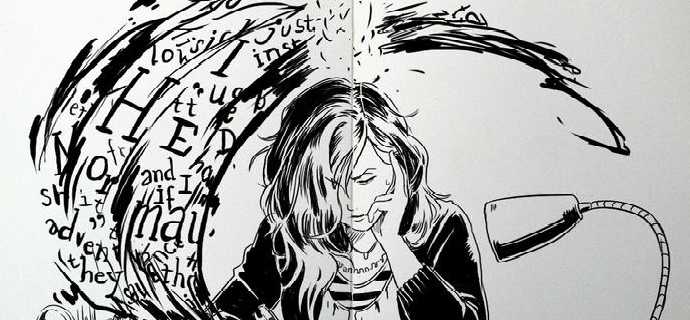
Writing a story is a labor of love–it can take years, the work of blood, sweat and tears. One cannot speak for all writers in a single article, but it is hard to believe that any novel that makes it to press lacks all heart completely. When asked to give advice to aspiring writers, Rick Riordan, author of the Percy Jackson and the Olympians series, responded that “You have to be compelled to write. If you’re not, nothing else that you do matters.” (Riordan). Upon gazing at YA works such as Sarah J. Mass’ Throne of Glass series–totalling to eight books and over 5000 pages–it’s hard to imagine what could have driven such a marathon of storytelling other than Riordan’s described need to write.
Before there is ever a story, there is a dream–one so powerful it gives writers the strength to trek 5000 pages, each one a step closer to bringing a whole world to life. Often, this dream is a restless thing–one that doesn’t necessarily opt for the linear path. But in a way, it is this restlessness, this instinct to grow, that gives each inch of growth within a story a sense of authenticity. Sarah J. Maas’ Throne of Glass is an epic that began with one assassin: Celaena Sardothian. Part of the story’s great pull is the need to unravel this protagonist’s past, to make sense of her place in the magical, dangerous, fractured world she exists in. But even through rich story building, through each glimpse at Celaena’s old life within the first two novels, Maas paused. The story paused, all to make room for a prequel just before the release of the series’ third installment.
In her own description of where The Assassin’s Blade falls, Maas identified that “this collection of five novellas explores the history of this cunning assassin and her enthralling–and deadly–world” (Maas). If one is looking for Maas’ motivation behind this additional content, one need look no further than the word “explore.” Just as every story is a new adventure to a reader, the same can be said for the author who is writing it–they just embark on the journey first. From the reader’s shoes, it can be easy to question the magical appearance of more books alongside already beloved tales. But more often than not, these books are no matter of question for the authors who wrote them. They are a necessity, a new source of life, for the story they are a part of.
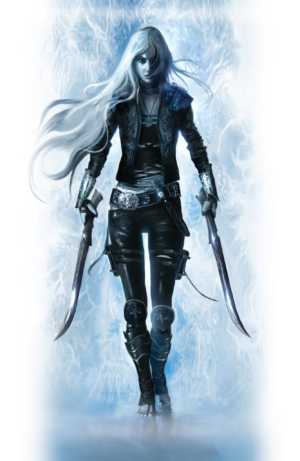
The bond between author and story is like that of a sailor and the sea. It is a love for traversing the known and unknown alike in search of something beautiful–meaningful. Some author’s know exactly where every page of their books will go–they know where, when and how. But the same cannot be said for every author–every story–because no two literary voyages are alike. These differences, however, are not what make a series unspun or halfhearted–they are the very thing that make every family of YA novels unique. The Assassin’s Blade was Maas’ way of giving space and title and details to Celaena’s slowly unraveled past. It was a way of giving depth and understanding to a world that reader’s jumped into headfirst–and halfway through–upon the opening events of Throne of Glass. What many reader’s forget to look for when trying to see what holds a very long series together is the fire that drove the author to write it. Through searching for this motivation, one might be able to see each set of content for all it is meant to accomplish within the entirety of its story.
The Light of Each Contribution
When finding what connects every piece of a YA series, it is also important to consider the contribution of all content beyond the motivation that put it there. It is rare for a reader to finish a book without a strong set of opinions: how they felt about the ending, certain characters, choices of the author. Above all, though, readers will often wonder if each book they’ve read was worth the read. While books can be pass-times–a source of escapism or inspiration–they are also a commitment. For what little time people can carve out of their lives to jump into the life of a story, it is a common wish for this time to be spent well–not on a wild goose chase of counterfeit purpose, a hollow echo of a series they already adore. As a result, many will ask whether the extent or extra content of many YA series is really necessary. Is that prequel a true pillar of the overall plot? Would the entire story truly crumble without the dull moments of book six?
In a way, these are all valid questions–ones that can be difficult to avoid. In another, they miss the great point of embarking on a literary journey in the first place. Most read to get away from the deadlines and rules of the real world. Even the brutal universe of dystopian fiction provides a step away from one’s own dystopia of bad days. Seeing the value of every broad stroke in a YA series lies beyond the asking–it lies in the looking. If one searches only for why certain stories or plot points shouldn’t be there, that is all they will find. In the end, each reader only takes from a story what they are willing to. Evaluating what all pieces of a story have to contribute gives readers a greater picture than closed doors and closed minds ever will.
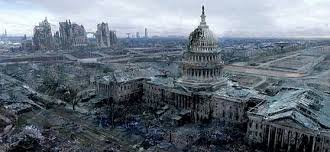
Marie Lu, author of the Legend series, threw readers for a loop with Champion: the final book in this acclaimed dystopian trilogy. Its ending had a pointed, potent, heart-wrenching kind of beauty–a contrast to the “all-wrapped-up” happily ever after that most readers have come to expect. But for Lu, this novel wasn’t quite the end. After writing two other novels in a completely different series, Lu took one last jump back into the world of Legend with Rebel: the finale this series had been waiting for all along. Set ten years after the first trilogy, told through the voice of the former protagonist’s younger brother, one might easily expect confusion from this series’ original readers: those who wanted immediate answers to the characters they had come to know. One might wonder whether this book was cut from the same cloth as those before it–whether any binding thread could really connect the great space between them.
But the act of writing is a very human thing. At times, its most unexpected and unknown paths can lead to the most important destinations–or literary contributions. In a 2019 interview with Entertainment Weekly, Marie Lu herself admitted that while “returning to Legend was a matter of when, not if,” she wasn’t completely sure of how to bring this final installment to life upon finishing Champion (Lu). At its heart, though, Rebel was intended as anything but a shortsighted tack-on. It was Lu’s ending, the finalization she found for her characters after stepping away–all the way into another series.
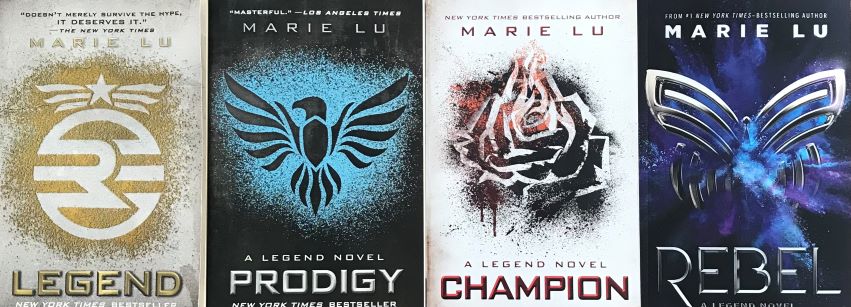
In this final installment, Lu “says she found real closure” within her series (Lu). And with a little looking, a tilt of the head, Rebel stands to offer its readers the same sense of closure–if this is what they seek upon opening its cover. There is a sense of peace in this single book that Champion couldn’t give its past characters–a peace that came with time, just like the time Lu needed to write it. It’s hard to know what anybody will take away from a book–and it’s an impossible thing to predict. But one’s attitude along the way is what makes all the difference. An author is simply a person who speaks the language of paper and pen. They cannot be expected to wave their wands and cast the ideal series into existence. Bringing a story to life may be a kind of magic, but the complex process behind it requires time, work, patience.
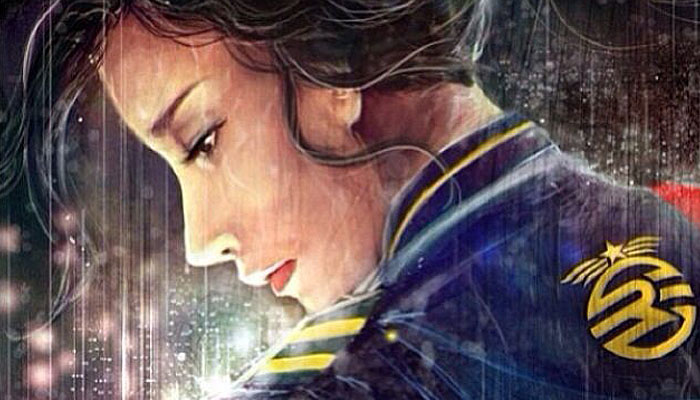
It is easy to believe authors are perfect, to place unfair demands for a flawless story in concise packaging with a pretty bow. But a series, a story–it is alive. It is a current of back and forth, original and prequel and sequels with a few rippling novellas in between. Some authors have mastered the clear standalone or duology or trilogy–because this is how they write. But every story asks something different of its author. And sometimes, it is difficult to predict when and how those stories–every bit of them–will eventually take shape. Seeing this shape in its entirety–appreciating every cog in the delicate clockwork of a series–relies solely on a reader’s ability to look for all that every piece of a story can give to its whole.
Integrity: A Tale’s Inner Glow
In rationalizing what gives life to a lengthy YA series, a final lens to look through lies in assessing each extension’s integrity to its roots. After a YA series gains ground–and a steady base of readers who tread it–the world that its author is writing within begins to change. On top of the already roiling seas of plotting a plot, a new storm comes when the influences of others–demands, critiques, expectations–seep in. The more notoriety a story gains, the more difficult it can be to hold true to one’s own course–the course authors begin with only a pen and a whim and a hope. On this course, some see each extension of a story as a dilution, a compromised version of a series’ true voice. Some look at stories with the idiom of “quit while you’re ahead.”
But in the end, how long a story is or when it occurs or how it fits into the original plot are simply details when held up against the integrity of each chapter. In the end, the key to determining a series’ strength depends on how strongly it adheres to where it came from. In a world of tropes–where the guy gets the girl, where the butler is the killer–people are quick to assume that every author will eventually fall prey to the industry of writing over the art. But such an assumption underestimates the power of what it means for an author to build a world, to create a character.
By the end of a series, some writers often claim they know their characters better than they know themselves–that their characters are a part of them. Readers often feel pretty similar after reading a series–in a way, this may be the root of their quick jump to suspicion when those series’ continue to grow. But through this bond, one is given true sight into whether each step in a series holds true to its origins. A series only really lives as long as its characters do–not necessarily in the literal sense. The biggest difference lies in the little details.
The choices characters make, the growth they experience, the way they laugh. This is where the integrity of a story lies–not in the sturdiness of its spine or the wear of its cover, but in the pulse of its literary world. It lies in the melody that rings through every inch of a series–every bit of content to accompany it–that comes from wherever that story began. The integrity of a story depends on its motivation and contributions alike. But there is something deeper to this quality as well, something human. And that very quality if found every time one asks if a chapter rips a hole in the delicate threads of its characters, or if it patches a rift readers may never have even realized.
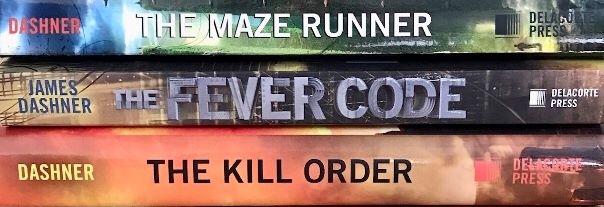
The Maze Runner is a cornerstone of today’s dystopian library. It is a series that began with three novels, but has since become a maze in itself–one comprising these three, two prequels, a book of novellas, and a new sequel set ten years after the original trilogy. Say that ten times fast! This series could be prime grounds for one to ask what left there is to add to a story that simply began at the center of a maze. But with such an outlook, one has already lost all these stories stand to offer. A story has a life in its own right. For all a series can say in its first round, there is often more work waiting to be done. It just may take the author a little while to realize it. In the end, it doesn’t really matter where a story begins for it to have a home next to those that came before it. What matters is whether they are carved of the same wood, sprung from the same trunk.
A series that began with a couple dozen amnesiatic kids stuck in a maze is founded on the unknown–in a past even the main characters don’t have access to. Much like the situation with Maas’ Throne of Glass, James Dashner’s The Fever Code gives readers a long awaited glimpse into the lives of those trapped within the maze before it was even built. Before that, The Kill Order, showed readers a sun scorched apocalypse that called for such a maze in the first place. But the binding that connects these stories is stronger than the stone in any ivy covered wall because they hold true to all readers learned in the original trilogy. These books simply add more pieces to the map; they provide glimpses of a history that reader and character alike were desperate to unconver.
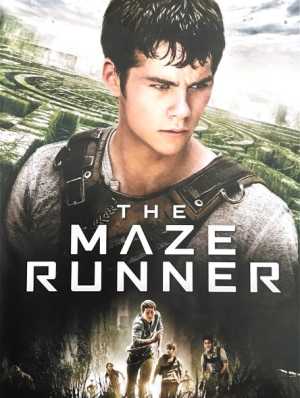
Both The Fever Code and The Kill Order are steps beyond the main plot readers knew in the original series: they have their own characters, their own struggles–all heavily influenced by the evolutive disaster they are trying to survive. At the same time, these novels also set subtle foundations for familiar characters like Thomas and Teressa and Newt that The Maze Runner is founded on. No matter how many cliffhangers they build, plot twists they weave, any author must know one truth. As James Dashner himself claimed in a 2014 interview with The Guardian, books “become sacred to its readers” (Dashner). For all the excitement that comes with watching a series grow–all it gives readers that await more of a literary world–such excitement comes with a responsibility too.
This responsibility is to the characters authors have written, the readers that have come to depend on them. In a world of rapid change and uncertainty, readers would immediately reject any Maze Runner prequel that painted Thomas as a disloyal coward with no stakes in his own broken world. But in planting seeds of bravery–seeds of purpose–for Thomas in books like The Fever Code, this series’ prime protagonist is given more time, more pages to run across. Just as with any extension of a series, staying true to what gives each series its heart is the only sure way to make each step across these pages something meaningful.
Plotting the Vast Seas of Story

One of the most miraculous things about literature–about the series readers bond so deeply with–is the feeling that they are endless. For some, such vast seas of stories are a daunting thing. One is brought to wonder whether every inch of it holds true to the plots they hold dear. But in the end, this truth lies beyond a reader’s immediate reach–beyond a cover’s surface.
Each series has its own journey to plot, its own world to explore. Whether they escape such a voyage unscathed–are made better by its vastness–is never a guarantee. But in assessing each journey for what it is, readers might find its motivation, contribution and integrity a good place to start. The YA genre especially comes with its own set of connotated pitfalls and dangers–the more a series grows, the more room there is for fluff and cliches and tropes to take the wheel. But before one blindly believes that such disingenuous forces will always win, they must take a closer look at the delicate stitching that holds a series together.
Yes, sometimes these threads get messy, sloppy, lazy. But just as often, more material is simply more room for beautiful patterns. It is room for characters to grow beyond whatever seemed possible–space for new arcs to rise like a new sun. The merit of a YA series–or any series for that matter–is not and never will be determined by wingspan alone. It is determined by how far a story soars on these wings–the reason it takes flight in the first place. Sometimes, such reasonings are a difficult thing to unravel. But isn’t that part of the journey? Isn’t that part of the adventure in hoisting one’s sales, gazing out at the sea, embarking on an evergoing plot wholeheartedly? One can only know if they take the time–the chance–to leave shore and find out.
Works Cited
Dashner, James. Interview by Patrick Sproull. The Guardian, 10 Oct. 2014, www.theguardian.com/childrens-books-site/2014/oct/10/the-maze-runner-james-dashner-interview. Accessed 19 Jan. 2023.
Dashner, James. “The Maze Runner Series.” James Dashner, jamesdashner.com/books. Accessed 19 Jan. 2023.
Lu, Marie. “Books.” Marie Lu, marielu.com/books. Accessed 19 Jan. 2023.
Lu, Marie. Interview by David Canfield. Entertainment Weekly, 8 Aug. 2019, ew.com/author-interviews/2019/08/08/marie-lu-rebel-legend/. Accessed 19 Jan. 2023.
Maas, Sarah J. “The Throne of Glass Series.” Sarah J. Maas, sarahjmaas.com/books/throne-of-glass-series/. Accessed 19 Jan. 2023.
Riordan, Rick. “Advice for Writers.” Rick Riordan, https://rickriordan.com/about/advice-for-writers/. Accessed 19 Jan 2023.
What do you think? Leave a comment.











What a great read, thanks for the article. I personally enjoyed the Maze Runner series, but it definitely had some flaws. The first book was the best, I think, because of its unique premise. It was a true YA in the sense that teens had to completely fend for themselves, there weren’t any adults there to complicate things.
The second book was interesting. I actually liked Brenda more than Theresa. I’m not sure why exactly. I think it’s because she was so forward and super brave.
I loved both Minho and Newt, almost more than Thomas. Newt’s fate was so tragic. I thought both of their characters were developed really well. I thought Chuck was really annoying (sorry) and didn’t feel bad when he died.
I thought Thomas was kind of an idiot at times, like when he sees the infected person at that coffee shop in Denver or whatever, and he sticks around to see what’s going to happen. He didn’t really think about other people, but that’s also the thing, Dashner always TELLS us how he’s feeling and what he’s thinking, he doesn’t SHOW us. That’s, I think, the main reason I was annoyed by the way the stories were told.
The third book is really infuriating for me. WHY DON’T YOU JUST ACCEPT THE MEMORY BACK, THOMAS?
I feel a trilogy is a good stopping place for most series. Not all stories have the wherewithal of GOT.
I read the Legend books years ago, right at the tail end of the Hunger Games ripoff craze, and it’s just another one of those. A bit better than average maybe, since it has a real story beyond the teenaged romantic entanglements, but it’s still a tale of teenagers being the ultimate archenemy of a totalitarian regime. And that regime doesn’t make much sense.
It’s the “my mind is blown by these new ideas I’ve never been exposed to, this media is genius!”-effect of people reading YA pulp that blatantly stole it’s plot devices and themes from great works of literature.
I mean every story has been done before so I’m not sure why YA gets so much grief for doing the same. There’s like a dozen story templates reused in every genre at every age group. People can like a book for what it is whether or not it uses archetypes that have been done before 🤷♀️
I read Miss Peregrine’s Home for Peculiar Children and while I thought it was pretty cool and original, I very disappointed at the end when I found out it was hardly a complete story and just really a set up for a sequel. It felt like I had only read the first half of a book.
That is sometimes how those things have to go though. Sometimes you have to leave things off at a bit of a loose end, though hopefully you may be able to write in some form of closure.
I was under the impression that it was a stand alone?
I think you could think of it as a series or as two trilogies, with the second using almost all of the characters from the first and introducing new ones. There’s the original trilogy (Miss Peregrine’s Home for Peculiar Children, Hollow City, and Library of Souls). Now there’s what I think is a sequel trilogy/continuation (A Map of Days, The Conference of the Birds, and The Desolations of Devil’s Acre). I think you can read the first three and think of them as a complete trilogy, but also all six as one series.
I wish he had stuck with the first three books as they have cohesion and magic the later three books lack (in my opinion at least), but I was still excited to see the new, fourth book when it came out
A ten series book that is awesome? Bring it on!
A ten series book that could have been done in three? No thank you.
I just stop reading when it becomes obvious the author/publisher is stretching things out in the hope that the readers will spend extra money to see how it ends. I’m not interested in reading a bunch of filler because somebody has decided that’s the best way to extract the most money from the audience.
If all these books were written better with more action and less fluff I wouldn’t mind. I thoroughly enjoy longer series when shit actually happens in them!
As someone who thoroughly enjoys reading early-mid 1900s pulps I felt article was meant for me. =)
I like long YA series when I like the books. I would kill for another Robin Hobb ROTE series even though its already 11ish books.
Even the most successful authors rarely make enough from thier writing to live off. So drawing out a series is the only way to guarentee another solid paycheque.
One of my favorite authors, R.A. Salvatore, has been writing books about Drizzt and the Companions for…. hang on… 33 years! There have been whole inner-trilogies where it seemed he was on autopilot, but he has to keep writing these books because THEY SELL. He admitted in an interview that those, his most successful books, make him the equivalent of minimum wage. What else is he supposed to do at this point?
Excuse my ignorance but how is that possible? Does the publisher take a lot of the money? Lots of people in between? The stores? What happens? I’d expect that if a book sells a lot of copies the writer would get lots of money, like a couple cents per copy from a million copies would still be plenty of money right?
He makes a huge amount of money on the books. He also spends a huge amount of time storyboarding, drafting, editing, rewriting, etc. so the amount of money made per hour spent working is lower than expected
Ah makes sense if you put it that way.
I try to only read series that are complete to avoid getting drawn in (and also to avoid situations where a series will likely never reach completion, like ASoIaF).
ASoIaF is totally finished, I don’t know what you’re complaining about, unless you foolishly chose to read the fan-fic extensions Feast For Crows and Dance of Dragons.
Sword of truth we are looking at you.
Read that whole series and still regret it. He somehow turned his protagonist being captured by an s&m witch into a boring slog.
I read that book pretty recently and cannot imagine how anybody could have the desire to read the 2nd one. That may have been the single worst book I’ve ever read.
More power to the guy for making a career out of it, but my God it was horrible.
Just started Malazan. Hoping I’ll dig the whole series.
I hate these series. I don’t what’s the need for so series for pretty much anything. I mean if there was a need for it I understand. But nope. They want to milk it to the last brink. I am not doing it anymore. I only read one and leave it at that.
Yeah some are good. Really good, especially when there is a story to it. Now, it so happens every character has a series. I am really bothered by it. Like for example, Hercule Poirot or Mrs. Maple series are so boring after a point. And then there are romances. Fifty shades, Twilight, other numerous romances and detective books have series which are driving me insane. Don’t get me wrong, I am fan of lot of series but writers making everything into a series is going out of hand.
I love a good trilogy; however, some book series grow unnecessarily long. If a series is longer than three books, I won’t even attempt reading it until it is complete. But I also think there are some trilogies that would be just fine as duologies, or even as one long standalone.
The Legend series is definitely a classic YA dystopian book. At the time when dystopian was becoming a big trend in YA, Legend was one of the biggest titles alongside Hunger Games and Divergent.
Yes. I read this series several years ago and really enjoyed it.
I read the first book in the series, and a little bit of the second, but couldn’t really get into it. On the contrary, I actually felt like the characters were a bit cliché. But to each their own!
I enjoyed this article very much and was honored to help with the revisions!
The authors may have spent years and years and years coming up with ideas and writing the first novel, but then have to turn around a sequel more quickly.
Some readers simply like the fluff and extra world building.
The maze runner series. I love them!
In many cases, after the first book takes off, the author (and their editor) feels like they’ve proven themselves to audiences and the publisher and feels less pressured to cut things they’ve enjoyed writing in the name of ensuring their novel is tightly plotted and moving along at a decent pace. So, later installments are just more bloated.
I don’t have a huge problem with authors writing books in the same world. I get why they do it. I just wish they would have a satisfying conclusion and story arc at least every 3 books. Then maybe go follow a completely new character, in a different part of the world, and 75 years in the future or something. Or maybe go tell a story about a historical event mentioned in the novels but never explored.
Because right now if someone came to me and said I should read some series that is 9 books and the author is still writing them, I might steer clear until they are definitely done. However, if they said it was 9 books with 3 very distinct story arcs I might be more willing to give that a shot.
Terry Pratchett had the right idea with Discworld. It’s a series of loosely connected stories in the same universe. There are a few long series (though the novels themselves are fairly short) and a few short ones, some short stories and one-offs all with varying styles. I imagine it would be very freeing for an author to not be tied down to one set of characters and styles. You can tell a story in a series, do something else, and only come back to it when inspiration strikes, rather than feeling compelled to make something up quickly for a paycheck.
I predict that this model is going to be more common in the future. Comic books have pretty much always done this (from the reader’s perspective) and with the Marvel Cinematic Universe, it’s a proven success with the public. We’re seeing spinoff shows get as much attention as the mainline content. People are hesitant towards different, and an interconnected universe of content makes the different feel familiar.
My pet peeve is a sci-fi novel with all the good ideas of a ten page short story packed into it.
If you are giving me another book after #3 there better be a damn good reason why. I’m not reading 8 filler books where they start playing with POV or some other thing to draw it out.
For me this depends on what kind of “series” it is. If a single storyline is being needlessly dragged out, that’s aggravating. But if is just “here’s a new independent story about the same characters you already know and like” – think Sherlock Holmes or Miss Marple – then there’s a much greater chance it will just be seems as a welcome addition.
How about Anne Rice? Loved the first book back in the day and liked the 2nd and maybe 3rd and 4th (can’t really remember) then I got to some part and was like “ok, now this is just weird”
reread them somewhat recently and didn’t get quite as far before making the same determination, I believe it was when one of the vampires was going on about drinking a woman’s period blood.
seems like she got too rich and famous and had nobody around to keep her in check.
I was reading the Wheel of Time books while they were coming out, and that’s what’s broke me. I think I read up to 5 or 6 before I realized that nothing was ever going to happen, he was just writing to write more and more words and have less and less happen per book. Now I just won’t read a series until they’re all out.
This is disheartening. I just restarted Eye of the World after reaching around page 200 for a 3rd time. I highly doubt I’m gonna power through the whole series, but you never know
I prefer companion series over continuous series. Each book can stand in its own but may share a cast of characters (friends and family usually). I’ve seem too many fantasy series get extended due to popularity (YA is notorious for that) and it’s just tiresome. I love to have a sense of finality and closure.
Great article! This is also how I found out there are not one but two prequels to the maze runner
I myself have stopped reading these kind of YA series since they tend to get longer and lose thread and soul… Nice article though =D
I read The Watchmaker’s Daughter and it felt like someone was setting up a scene. They never actually got into the story. I was so enraged, I stopped reading 90% of the way through. I’ve never done that before.
A Curse so Dark and Lonely should have stayed a standalone. The second book is bad. The characters are no longer in character and her lack of familiarity with the Fantasy genre really showed once she attempted political intrigue (which HAS to function with logic and none of things characters did had any semblance of logic).
LIKEWISE with Children of Blood and Bone. It was a hard shift away from the characters I enjoyed, to the point where my respect for the series basically blew up overnight.
Legend series holds a special place for me because i found it in my middle school’s library in 6th grade, and it clicked with me. I think the reason I liked the Legend series is because it had interesting world building, a protagonist with a tragic backstory, and sappy romance-I’m a big sucker for romance. It has kind of grew up with me to be honest. I can see some of the flaws, and I’m aware that my bias blinds me to some of the flaws as well. Anywho, my point is liking books despite their flaws is fine.
I like the Outlander books but I got the point by book 4. Meh. Happens
Ack… how about the Laurell K Hamilton’s Anita Blake series. There’s over 25 books in the series now and I keep thinking, when is she going to finish this already? She’s already written everything she can, how much more can she write… But now it’s just fillers.
I slogged through The Maze Runner, to be honest. Thomas was daft, the slang was frustrating, and the plot dumps were just maddening. After pages upon pages of unanswered questions.
It all goes downhill after the first book.
Divergent. It could have been two books. So much of book 2 was just torturous filler material IMO.
Then let me tell you about The Selection. It spent 3 books that could’ve been condensed into 1 and the spin-off could’ve been one too although it wasn’t as drawn out.
I feel like in order to keep a story whole. You have to stay true to your vision, the characters, and the story itself. That’s the key. Kids and adults who read these books don’t come in for a random series of events, they come to read these books to fall in love with the characters, get immersed in the world created and the story the characters are caught up in. I’ve read some books that, in the beginning, they were beautiful, but then I saw them get marred by political statements, the authors putting too much things into motion, the world just being there, not mattering to the overall plot.
Great article! Very coherent and made some excellent points. I particularly enjoyed the rather eloquent and insightful points you made about the journey the series follows.
What a brilliant read! Loved the flow of the article as a whole.
I imagine the trick with YA fiction in particular is how quickly young adults grow up. If an author takes “too long,” the intended audience of the first book in a series may not be in the target demographic anymore by the time the story is complete. Imagine if A Song of Ice and Fire or the Kingkiller Chronicles were intended for young audiences. There would be a lot of kids growing up to be very disappointed adults.
A Game of Thrones is best at all
I enjoyed this article very much.